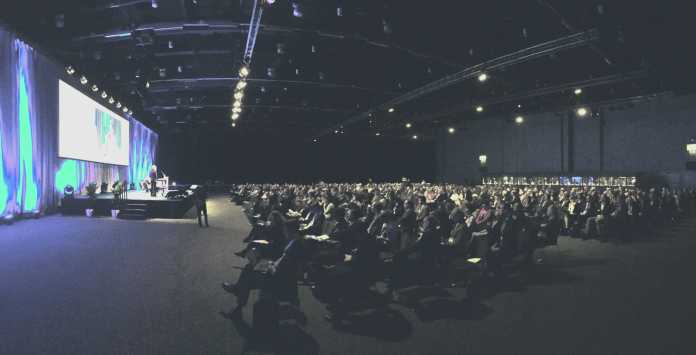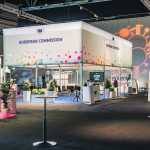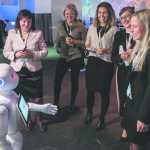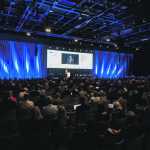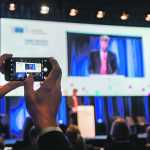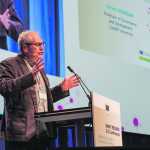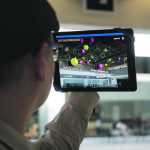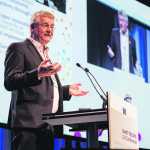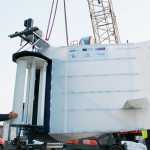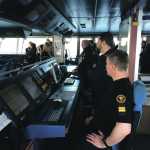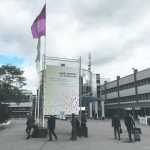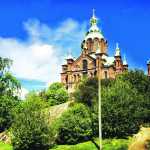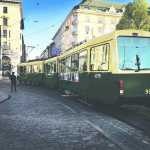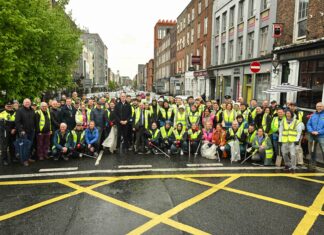 LIMERICK Post journalist Andrew Carey travelled to Finland recently for the EU Smart Cities 2.0 conference which was held in Helsinki and reports on the connections that Ireland, the Mid West and indeed Limerick has to the EU Framework Programme and Horizon 2020.
LIMERICK Post journalist Andrew Carey travelled to Finland recently for the EU Smart Cities 2.0 conference which was held in Helsinki and reports on the connections that Ireland, the Mid West and indeed Limerick has to the EU Framework Programme and Horizon 2020.
CITIES, towns and regions throughout Europe need to collaborate more, “now more than ever” amid Brexit, the President of the European Committee of the Region’s has told the three day Smart Region 2.0 conference in Helsinki.
To combat the uncertainty of the relationship climate during the UK departure from the EU, together with the flux in transatlantic trade relations, EU Committee of the Region’s president, Markku Markkula said that a collaborative sharing of information on innovation is key to make our cities, towns and villages more attractive for prosperity.
Armed with €67bn in funding until 2020, Europe’s regions can thrive on all manners of projects, both big and small.
In Limerick, companies like DesignPro, who have had success at the EU Framework Programme with funding from Horizon 2020 along with GKinetic Energy and UL based researcher Dr Michael Scanlon on his clean energy developments, are just a number of examples of how relevant the EU is locally.
This, according to Ireland South MEP Sean Kelly, augurs well for the region in creating links and developmental research and beyond, but caution amongst the fallout from Brexit is needed.
Recently, the FG MEP said that we ”experienced strong economic growth in the past few years, however certain political development, particularly Brexit, are set to have a profound impact on our economy.
“For this reason, it is crucial that we seek to mobilise the investment that can help to shield us against the potential negative effects of the UK’s decision.”
In Helsinki recently, the Smart Cities conference heard from a number of speakers supporting the collaboration call to get regions working together to share the benefits of research and development.
Professor Kevin Morgan of Cardiff University explained how skill sets from a variety of sources can be shared amongst many differing professions.
“In Wales, we found that an Formula one pit team had the same response skill sets as paediatric maternity nurses. The pit team, who predominantly change tyres and fuel cars in seconds, were able to share innovation with the maternity team for life saving situations. It was the public sector learning for innovation development”.

EU CoR president Markku Markkula asked participants and stake holders to consider “What does Smart regions mean for me?
“Regions need to create your own history and future with imagination and entrepreneurial discovery – ask what can you do yourself?
“The new role of cities in catalysing and enabling ecosystem development is key as there is a strong move towards platform economy.
Mr Markkula urged the importance of value networking and regions encouraging individuals and communities to explore entrepreneurship.
“Get political decision makers to understand what their role can be to support industry.
“Industry is not interested in the words of strategy, more on the real action that is carried out.
In Europe’s journey for transformation, Mr Markkula said that everyone has to be pioneers to create opportunities and help create regional innovation.
The messages from the conference included that “Policy needs to support the project of European integration and the challenges it faces
“Regions need to be more resilient and promote competitiveness.
“Transformation happens at a local level where people live and work,” president Markkula added.
“We need global excellence but local relevance and processes which are transparent inclusive and participant.
Regions and their stakeholders need to “Accelerate new ideas to market, bring research and innovation policies closer and communicate better with citizens.
Speakers from the event asked regions, including the South of Ireland and indeed the Mid West, to expand and solidify their links.
“Rural needs to connect with urban or even through international collaboration.
Polices are tailored at a regional level and is guided by the stakeholders but rural regions should not be dissuaded as they can become hugely important in a regions overall development.
Deputy Director General of the EU Commission Normunds Popens, said that any region can have innovation and learn from smart specialisation.
“Regions who don’t innovate don’t develop. People need to push together to talk and breakthrough and have a joined view. This will help lagging regions”, he added.
Wolfgang Burtscher, another EU Commission deputy director general said that researchers previously felt alone from Europe but now “research and innovation is higher up on the political spectrum
“R&I funding takes place in Horizon 2020 and Smart Specialisation.
“Despite success in bioenergy or aviation, Europe is still divided in the development of R&I and there are still stumbling blocks.
“Very few of the projects get funding as they have to be so good, but how can less developed regions achieve funding?
“The core of Horizon 2020 is to have the very best projects to the fore, but there are different funding streams at a regional level to assist other projects. The regions need to fully explore these.
Antti Peltomäki, a deputy director general responsible for industry and entrepreneurship said that when the private sector player wants to find out “what’s there for me” they need to find that they feel involved.
“We are trying to create a platform to focus outwards from the Brussels platform and help create jobs. We have to be adaptive and ready to transform in the ways that we do business and create policy.”
One size doesn’t fit all when it comes to policy, he said, “some don’t like the command structure, while others do need the structure”
Timo Pesonen, EU Commission deputy director general for communication said that it was hugely important to talk to people on the ground and enhance the modernisation in the way we work at the Commission.
“We want to have consistent dialogue with citizens.
“The language is difficult and has challenges. We push out press release every day and are the biggest communications wheel in the world. We want it to be understood by all and the bureaucrats from Brussels need to look how to be clearer.
“Commissioners need to talk to citizens or the people will feel isolated. Meeting the people eye to eye matters.
For underperforming regions, the conference asked that support be given to those who think that innovation is beyond them.
“Bring the experts in, assist the regions and the projects they want to develop as in the first two steps to excellence of Horizon 2020, Mr Pesonen said.
“If there are too many obstacles to provide funding we in Europe are shooting ourselves in the foot.
Breaking down the perceived barriers created by the EU structure is key according to Mr Pesonen who said that it’s a mindset that must change.
“You have to look at the policy and rally people together. There is a cultural change from the millennials and UK leaving will be a big blow which we don’t yet understand.
The biggest problem is governance of cities, urban and regional areas.
“Europe is trying to understand real world issues and listen to the players through the commissioners meeting them. Some people don’t know about the Smart Specialisation strategies – not every sees it but we try to create the awareness.
“The onus is on Government within that country to inform the stakeholders and for the stakeholders to seek out the support.
“People and our citizens need to be informed.
“There is a core competence that communications strategies must be put in place by the member states regional authorities.
“You have to invite the main stakeholders and reach out and connect”, Mr Pesonen added.
See our special feature here

